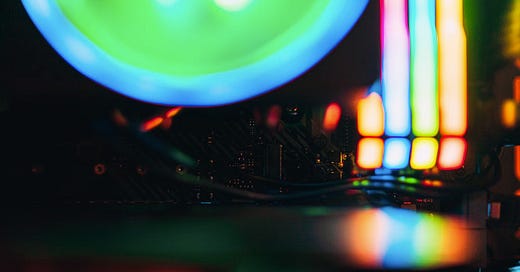The pendulum is swinging back towards founders, which isn't great news for beleaguered VCs
Welcome to Cautious Optimism, a newsletter on tech, business, and power. Modestly upbeat.
📈 Trending Up: Blocking anti-consumer cartels … YC-backed Waza … acquihire returns? … demands for justice in India … US-China financial ties?
📉 Trending Down: Bundling … the F1 summer break … the Seattle Storm … India-Russia relations … Arctic ice …
🤔 What Else?
Karp for Kamala: Given the rightward tilt of some tech folks, you might have expected that Palantir’s Alex Karp was ready to swap teams. Wrong, as it turns out.
Everyone hates SB 1047: Nancy Pelosi took aim at the controversial California AI bill that critics vehemently despise. Pelosi, while no longer House speaker, remains a power in Congress, and her words carry weight in her home state. (Nancy Pelosi was once my Congressperson when I lived in San Francisco.) Other Bay Area Democrats are similarly cool to the potential bill. I wonder at what point State Senator Scott Wiener takes the L and scraps the entire effort.
It’s silicon merger week: Two massive computing hardware deals recently landed in such quick succession that we might smell a trend here:
Rebellions and Sapeon pulled off their planned merger: Rebellions is a South Korean chip company that raised $124 million Series B earlier this year to build AI silicon and take on Nvidia. Its planned combination with Sapeon — an SK spinout that builds chips to handle AI workloads that most recently raised a Series A — is now a go. The two fabless companies could give South Korea a stronger, unified competitor to global AI silicon leaders.
AMD + ZT Systems = $4.9B: AMD makes chips, ZT builds “server computers for owners of large data centers” per Bloomberg. The combination could, in theory, see more AMD chips in more data centers.
Or as AMD put it: “ZT Systems’ extensive experience designing and optimizing cloud computing solutions will also help cloud and enterprise customers significantly accelerate the deployment of AMD-powered AI infrastructure at scale.”
The deal’s announcement is being well-received by investors, with shares of AMD up 2.52% in pre-market trading (Google Finance). Often, when a deal like this is announced, investors fret about potential overpayment and ding the share price of the acquiring entity. Not so in this case.
🗓️ Earnings and economic data calendar
Monday: Palo Alto Networks earnings.
Tuesday: XPeng earnings.
Wednesday: Synopsys, Snowflake, Agilent, Zoom, ZEEKR, and Zuora earnings.
Thursday: Intuit, Workday, Netease, Baidu, CAVA, Bilibili, Bill.com, iQIYI, Weibo, Peloton, and Opera earnings.
Economic: Initial jobless claims, existing home sales
Friday: Ubiquiti and VinFast earnings.
Economic: New home sales
The venture market is thawing for founders, while VCs struggle for generate real returns
The venture capital market underwent a rapid shift post-2021, shedding its founder-friendly investing climate for one that favored investors. Rising interest rates made capital more expensive — and therefore more valuable — helping give venture capitalists a stronger hand when it came to negotiations with startups looking to raise private-market funds.
Gone were the days of preemptive rounds, minute turnaround times for deal agreements, waived diligence, and the like. However, the AI boom has led to some 2021-era dealmaking, and recent data from Carta makes it plain that founders are often having a better time fundraising than they were a few quarters ago.
Venture capitalists, meanwhile, are going through it. Let’s take a look at both sides of the table.



